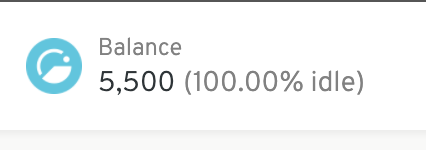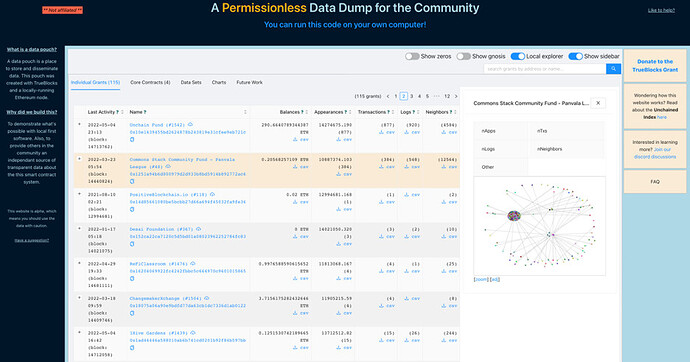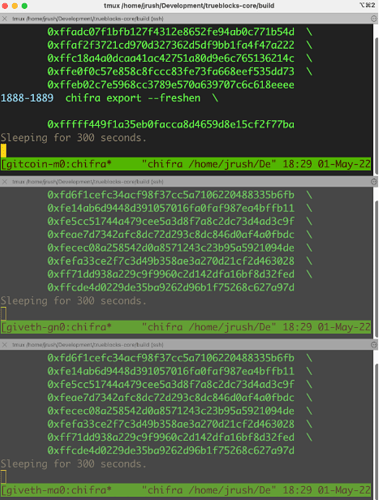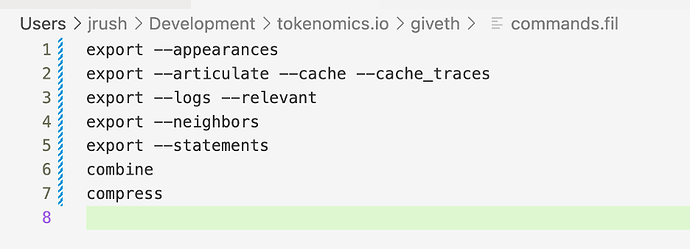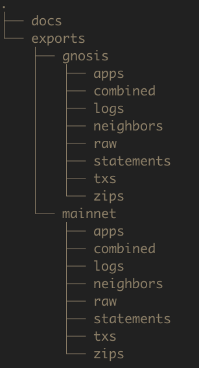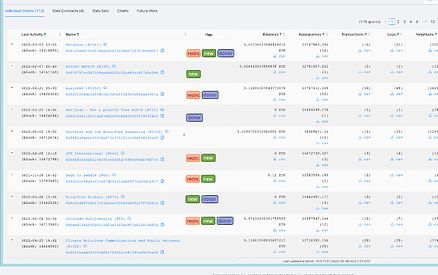The Proposal
TrueBlocks proposes assisting Giveth in its ongoing mission of building “a culture of giving” by helping establish a system for monitoring the platform against misbehavior. Specifically, we envision a short-term project whose primary goal is to automate the identification of participants who may be recirculating GIVbacks.
TrueBlocks is a local-first blockchain indexer, data scraper, and account explorer providing “user-centered” access to blockchain data. Our tools allow users to filter, transform, and customize on-chain data enabling monitoring and accounting for individual addresses as well as whole ecosystems.
As an example of our work, we recently built an unaffiliated data pouch (our term) that facilitates the analysis of on-chain Gitcoin data in support of its FDD (Fraud Detection and Defense) working group. While we understand that Giveth’s requirements are different, we believe the work we’ve done for GitCoin can be leveraged to address Giveth’s needs as well. To better understand the GitCoin work, please see this website: http://tokenomics.io/gitcoin.
Proposed Project
We propose a short-term (8-10 week long) project to assist Giveth in its efforts to detect and deter fraudulent or inappropriate behavior. The primary goal of the project is to experiment with automating the monitoring and tracking of donated funds in order to assure that only “first touch” donations receive GIVbacks.
We propose that the project consists of three steps:
- Define the “Recirculation” Problem and Identify Potential Methods of Detecting It and Establish Expectations:
- At project inception, work with appropriate Giveth team members to define the problem more clearly and to identify ways to programmatically address the issue.
- We envision working with the team to complete the attached document which we’ve begun but is in very rough form.
- This first step:
- serves to determine what, if any, modifications need to be made to TrueBlocks;
- helps establish appropriate expectations (given the fact that a perfectly generalized solution to the “fraud detection” problem is likely impossible).
- We anticipate this process taking 3-5 hours, including a few calls as well as some preparatory work prior to each call.
- There would be no charge for completing this first part.
- Complete the Port of TrueBlocks to the Gnosis Chain:
- TrueBlocks currently works with Ethereum Mainnet. In the past month, we’ve begun the process of adding support for other chains (Gnosis chain in particular). To ensure a complete set of data from the Giveth ecosystem (which runs on both Mainnet and Gnosis), we would need this work to be completed and fully tested.
- In the spirit of full disclosure, we plan on adding the multi-chain feature regardless of this proposal, however, if this proposal is accepted, we will prioritize this work.
- We anticipate this work to take a few weeks to complete.
- Provide Solutions to the Recirculation Problem Identified in Step 1 using Mainnet and Gnosis Chain Data from Step 2:
- Collect relevant verified Giveth addresses.
- Modify the existing GitCoin data pouch (mentioned above) to accommodate Giveth’s two sources of chain data resulting in a site similar to the linked-to site for GitCoin. This “monitoring system” would reside temporarily at https://tokenomics.io/giveth.
- Extend the data pouch scraper to export data to Giveth’s database/data pipeline. This might include something we call a Dynamic Traverser (explained here) which would allow for customizations as decided in step 1.
- Help define methods for Giveth to bring the above function in-house or find a dedicated node endpoint for ongoing monitoring.
- Iterate with the Giveth team as necessary to ensure all requirements are met.
- We anticipate this work to take an additional 3 to 4 weeks.
Proposed Fee
Assuming we complete the steps as outlined above, we would respectfully request $30,000 US dollars worth of xDAI or equivalent GIV tokens. (That’s $3,740 per week.) If either or both parties decide not to proceed after Step 1, there will be no charge.
Team
The team dedicated to this project are:
Dawid Szlachta is TrueBlocks’ lead developer. Before joining TrueBlocks, Szlachta spent eight years sharpening his skills on various large-scale web applications. He holds a bachelor’s degree in Philology from the University of Warsaw and lives with his wife in Kraków, Poland.
Thomas Jay Rush is the lead software architect at TrueBlocks and CEO whose favorite thing to do, apparently, is falling down rabbit holes. Variously an oil-well roustabout, a computer science researcher at IBM’s Thomas Watson Research 3-D Computer Graphics Lab, an early Internet Entrepreneur, a poet, a furniture designer, and a crypto enthusiast, Jay holds a Master of Fine Arts, Poetry from Rosemont College and a Master of Science in Computer Science from the University of Pennsylvania. He lives with his wife and children in Philadelphia, PA, USA.
For more information and links to our social media presence, please see this website: https://trueblocks.io.
Ethereum Address
TrueBlocks Ethereum Address:
0xf503017d7baf7fbc0fff7492b751025c6a78179b
trueblocks.eth
Conclusion
Thank you for considering our proposal. We look forward to answering any questions you may have. We’ve been longtime supporters of the Giveth constellation of projects, so we’re very excited and interested to participate in any way possible.
One final word – we’ve always been greatly inspired by the Giveth & Commons Stack vision. While this proposal describes a short-term project for Giveth, we look forward to a continued relationship and would love to discuss how TrueBlocks might fit into a broader picture. We think TrueBlocks is uniquely positioned to help accomplish one of Elinor Ostrom’s key tenets: that of building effective community-based monitoring run by the community for a given commons. Help us build that.

